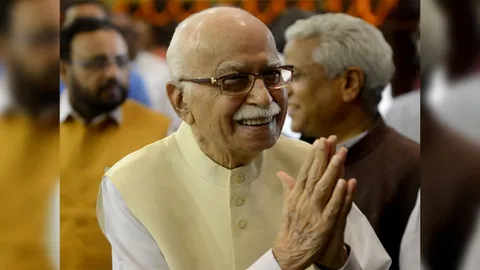In a significant development in the NEET-UG paper leak scandal, the Central Bureau of Investigation (CBI) has arrested Rakesh Ranjan, also known as Rocky, the alleged mastermind behind the operation. The court has granted the CBI a 10-day custody to interrogate Ranjan and gather further evidence. This breakthrough comes amid ongoing raids conducted by the CBI at four different locations—two near Patna in Bihar and two near Kolkata in West Bengal.
The Investigation Unfolds
The NEET-UG paper leak case has emerged as a major issue, leading to the arrest of over a dozen individuals, including the principal and vice-principal of a school in Hazaribagh, Jharkhand. These arrests are part of a broader investigation into a national network involved in leaking question papers for competitive exams like NEET.
The CBI’s investigation has been thorough and extensive. Last week, a student was apprehended in Patna, adding to the growing number of individuals detained in connection with the NEET-UG paper leak. To date, the CBI has filed six First Information Reports (FIRs), including five related to three separate cases in Bihar. This comprehensive probe highlights the gravity of the issue and the lengths to which authorities are going to combat corruption.
Advanced Investigative Techniques
A senior CBI official revealed that Rakesh Ranjan was caught following detailed analysis and strategic operations. The agency has been utilizing advanced investigative techniques, including the examination of digital footprints, IP addresses, and email communications. This approach underscores the CBI’s commitment to leveraging cutting-edge technology to combat corruption and fraud in the NEET-UG paper leak case.
Ranjan’s arrest is considered a pivotal moment in the investigation. It is expected to shed light on the intricate network involved in the malpractice, potentially leading to more arrests and a clearer understanding of the modus operandi behind the NEET-UG paper leak. The agency’s efforts aim to dismantle the entire operation to restore the integrity of one of India’s most crucial entrance examinations.
Impact on the NEET-UG Examination System
The NEET-UG exam, which took place on May 5, 2024, has been significantly impacted by the paper leak scandal. Allegations of cheating and impersonation have marred the examination, leading to widespread protests and legal actions from affected students and concerned citizens. The National Testing Agency (NTA), responsible for conducting the exam, has faced intense criticism and scrutiny.
In response to the scandal, the Union Health Ministry has decided to postpone the NEET-PG 2024 examination. New dates for the exam are expected to be announced soon. Additionally, the government has replaced the chief of the NTA and established a committee tasked with reviewing and improving the agency’s procedures and protocols. This move aims to restore public confidence in the examination system and ensure that such incidents do not recur.
Broader Implications and Future Steps
The NEET-UG paper leak has broader implications for the integrity of competitive examinations in India. It has highlighted significant vulnerabilities in the system and the lengths to which individuals will go to gain unfair advantages. The ongoing investigation by the CBI is not only focused on bringing the culprits to justice but also on understanding the systemic issues that allowed such a breach to occur.
Authorities are now considering the implementation of stricter security measures for future examinations. These may include enhanced digital security protocols, more rigorous candidate verification processes, and real-time monitoring during exams. The aim is to create a robust system that can prevent leaks and ensure a fair and transparent examination process.
Public Response and Institutional Reforms
The public response to the NEET-UG paper leak has been one of outrage and demand for accountability. Students and parents across the country have called for stringent action against those involved and a thorough review of the examination system. The scandal has also sparked a debate on the need for institutional reforms to prevent such incidents in the future.
Educational institutions, policymakers, and security experts are now collaborating to develop comprehensive strategies to safeguard the integrity of competitive exams. These efforts are crucial not only for restoring trust in the NEET-UG exam but also for ensuring that the examination system as a whole is resilient against such threats.
The Role of Technology in Preventing Exam Fraud
Technology plays a crucial role in preventing examination fraud. In the wake of the NEET-UG paper leak, there is an increased focus on adopting advanced technological solutions to secure the examination process. Biometric verification, AI-driven monitoring systems, and secure online platforms are some of the measures being considered to enhance the integrity of competitive exams.
Biometric verification can help ensure that the right candidate is taking the exam, reducing the chances of impersonation. AI-driven monitoring systems can detect suspicious activities during the examination, such as unusual eye movements or multiple people in the frame, providing real-time alerts to invigilators. Secure online platforms can be used to distribute question papers and collect answer sheets, ensuring that only authorized individuals have access.
Legal and Ethical Considerations
The NEET-UG paper leak case also brings to light various legal and ethical considerations. The individuals involved in the scandal face serious charges, including fraud, conspiracy, and violation of examination regulations. The legal proceedings will set a precedent for how such cases are handled in the future, potentially leading to stricter laws and penalties for those involved in examination fraud.
Ethically, the scandal raises questions about the fairness of competitive examinations and the pressure faced by students. The intense competition for limited seats in medical and other professional courses can drive individuals to resort to unethical means. Addressing these ethical concerns requires a holistic approach, including mental health support for students, ethical training, and creating a more balanced and fair examination system.
The arrest of Rakesh Ranjan in the NEET-UG paper leak case marks a significant step in addressing one of the most serious breaches of examination integrity in recent times. The ongoing investigation by the CBI and the subsequent reforms by the government and the NTA are essential to restoring faith in the examination process. As authorities continue to pursue leads and gather evidence, the focus remains on ensuring that competitive exams like NEET are conducted fairly, transparently, and securely.
The NEET-UG paper leak scandal serves as a wake-up call for the need to overhaul the examination system. By implementing advanced technological solutions, enforcing stricter security measures, and addressing ethical concerns, authorities can work towards creating a robust and fair examination process. The efforts to restore integrity in competitive exams are crucial for maintaining public trust and ensuring that deserving candidates get the opportunities they merit.
ALSO READ | NEET 2024: New Law Cracks Down on Exam Malpractice with Severe Penalties



